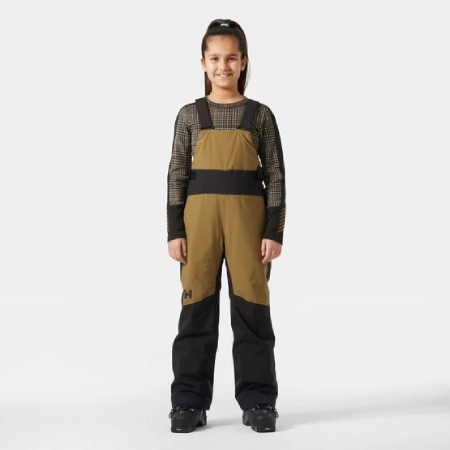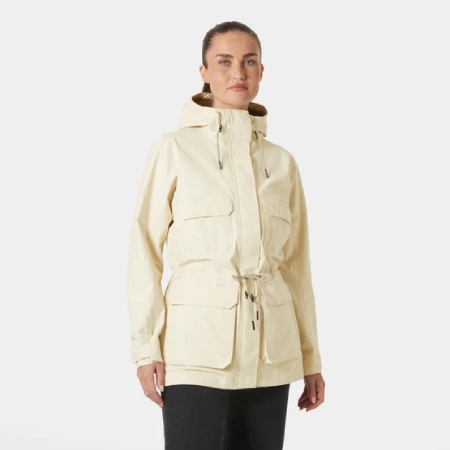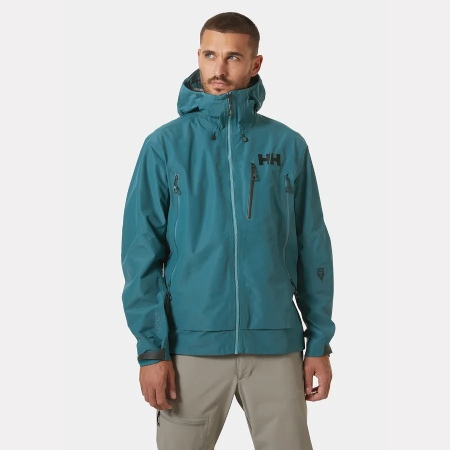Summer Sale | Get Up To 50% Off - Verified

Special Offer | Up To 40% Off Sale Items

Take 15% Discount On Selected Trousers & Shirts

Purchase And Save Up To 15% On Tops & Pants

Free Standard Shipping On Orders Over $99

Register And Get 10% Off Your First Purchase

Helly Hansen is a brand well known for its durability, creativity, and strong ties to the water. But how did a company created on the principle of protecting sailors and fishermen in the rough Norwegian seas transform into a global symbol for outdoor lovers and fashion-conscious people? It is a tale of continuous development, a dedication to excellence, and a timeless design philosophy.
Humble Beginnings: Oiled Jackets with a Vision

It was 1877. Helly Juell Hansen, a Norwegian captain with a thorough awareness of the harsh environment that sailors encounter, was looking for a better solution to keep dry. Dissatisfied with current tar-soaked gear, he and his wife, Maren Margarethe, developed a more flexible and water-resistant option. Their secret? Oiling rough linen with linseed oil. This basic yet innovative concept resulted in the development of the first-ever oiled jacket, which would quickly become extremely popular.
A Century of Innovation: From Linseed Oil to LIFA®
Helly Hansen's history is defined by a constant search of improved technology. They were pioneers in the development of waterproof fabrics, introducing the first flexible, transparent waterproof jackets in the 1920s. However, their most important discovery occurred in the 1960s with the introduction of LIFA®, a moisture-wicking synthetic fiber. This fabric was a game changer, wicking sweat away from the body to keep the user warm and dry. This three-layer system, which includes a foundation layer (LIFA®), a midlayer for insulation, and a shell for protection, became the industry standard for performance outerwear.
The Rise of the Professional: Trusted by Sailors and Skiers

Throughout the twentieth century, Helly Hansen established itself as a professional brand. Sailors chose their gear for some of the world's most difficult races and expeditions. The brand's experience in marine environments easily translated to another cold and demanding sport: skiing. By the 1970s, Helly Hansen's ski clothing had become popular among professionals and fans due to its warmth, durability, and flexibility of movement. The distinctive striped pattern, which is frequently featured on their coats, has become a symbol of both performance and flair.
The 1990s Streetwear Boom: A Cultural Icon
Despite the fact that Helly Hansen's primary focus remained on specialist clothing, a remarkable trend arose in the 1990s. The brand's bright, large coats and striking branding drew notice in the burgeoning hip-hop and streetwear communities. Helly Hansen became a desired item, particularly in urban areas, due to the mix of high-quality fabrics and a unique style. This cultural milestone reintroduced the brand to a new generation, assuring its position in the worlds of fashion and street style.
Back to the Future: The Legacy Continues

Helly Hansen now sits at the crossroads of a long legacy and a contemporary, forward-thinking mindset. They continue to create high-quality gear for professionals in sailing, skiing, and other demanding industries. At the same time, the fashion industry honors their traditional styles and historical items through partnerships and reissues that pay respect to their history. The brand's emphasis on sustainability and ethical production is also an important component of its contemporary identity, ensuring that its history of innovation and excellence will last for generations to come.
Helly Hansen's path from a humble workshop in Norway to the worldwide arena exemplifies the power of a great idea, a commitment to craftsmanship, and the everlasting charm of a brand that genuinely comprehends the elements.







